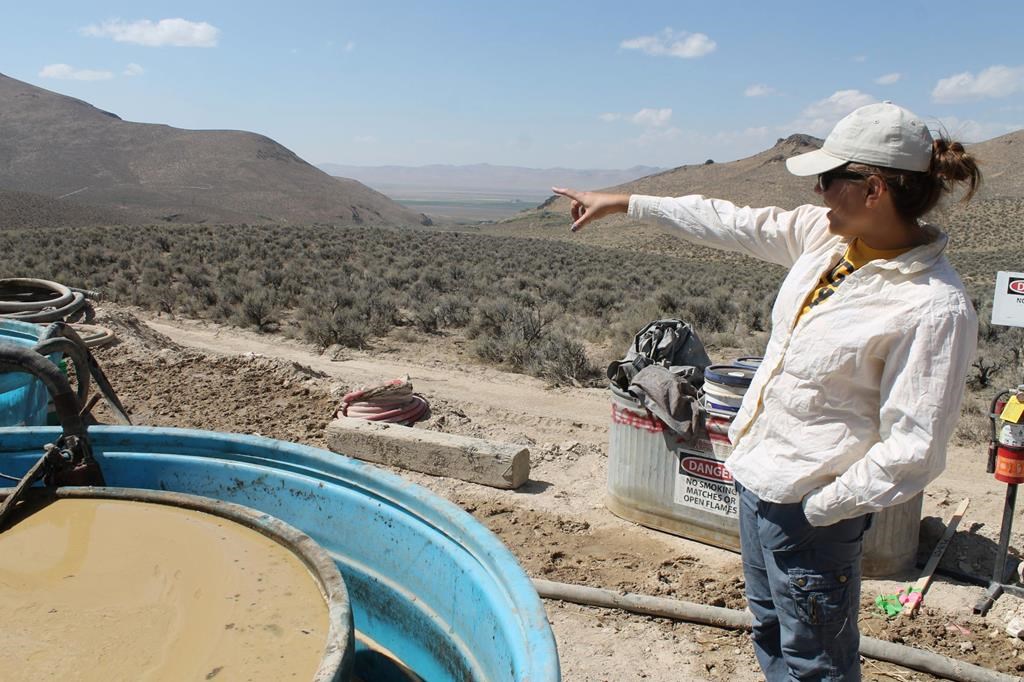Nevada Lithium Mine Victory: Renewable Energy Debate Continues
The state of Nevada has recently been victorious in a ruling in favor of a lithium mine that is expected to provide jobs and bolster the economy. This ruling marks a major victory for the state in their battle for green energy.
The lithium mine is located in the Humboldt Range in northern Nevada, and is the first of its kind in the United States. The lithium extracted from the mine will be used to make batteries for electric vehicles, as well as for other renewable energy sources.
The ruling in favor of the lithium mine was made by a federal judge, who found that the mine did not violate any environmental laws. This ruling sets a precedent for other states to follow when considering similar projects.
The decision was met with praise from the state and local governments, who have been advocating for green energy sources for some time. They argued that the lithium mine would create jobs and boost the economy of the region.
The battle for green energy sources is far from over, however. Opponents of the lithium mine are still fighting to have it shut down, claiming that it is an environmental hazard and poses potential health risks.
Despite the ongoing opposition, the Nevada Lithium Mine is expected to become operational within the next few months. This will be an important step forward in the state’s efforts to reduce its reliance on fossil fuels, and to embrace renewable energy sources.
The Nevada Lithium Mine is proof that green energy battles can be won. Its successful legal challenge is a strong statement that renewable energy sources are a viable option, and should be taken seriously by governments and businesses alike. The battle for green energy is far from over, but this ruling is a significant step in the right direction.
RENO, Nev. (AP) – A U.S. judge has ordered the government to reconsider part of its environmental assessment of a lithium mine planned in Nevada, but has denied opponents’ efforts to block it in a ruling the developer says that it will pave the way for construction of the nation’s largest known deposit of the rare metal, which is commonly used in rechargeable batteries.
The ruling marks a significant victory for Canada-based Lithium Americas Corp. on their subsidiary’s project near the Nevada-Oregon border and a setback — at least for now — for conservationists, tribes and a Nevada rancher, all of whom have been fighting it for the past two years. Opponents said they are considering an appeal based in part on growing questions about the scope of a 150-year-old mining law.
It’s the latest in a series of high-stakes lawsuits pitting environmentalists and others against so-called “green energy” projects that President Joe Biden’s administration is pushing for to help the nation’s transition from fossil fuels to renewable energy to accelerate.
The White House says the mine on the Nevada-Oregon line is critical to ramping up efforts to produce raw materials for electric vehicle batteries.
Critics argue that prospecting for lithium poses the same ecological threats as mining for any other mineral or metal in the US’s largest gold mining state. They say efforts to downplay potential environmental and cultural impacts amount to “greenwashing.”
“We really need just and sustainable solutions to the climate crisis and not digging deeper into the biodiversity crisis,” said Greta Anderson, deputy director of the Western Watersheds Project, one of the plaintiffs filing the appeal.
U.S. District Judge Miranda Du in Reno concluded late Monday that opponents could not prove the project, approved by the U.S. Bureau of Land Management in January 2021, would damage wildlife habitat, affect groundwater or pollute the air .
She also denied – for the third time – the relief sought by Native American tribes, who argued that doing so could destroy a nearby sacred site where their ancestors were massacred in 1865.
In her 49-page judgment, Du emphasized respect for the approval of such projects by a federal agency. However, she also acknowledged the complexity of the laws regulating energy exploration in a recent U.S. Circuit Court of Appeals ruling she issued that could pose new challenges for those making claims under the Mining Act of 1872.
“While this case encapsulates the tensions between competing interests and political goals, this order does not in any way determine a winner based on political considerations,” Du warned in the introduction to her ruling.
Other projects facing legal challenges in a US court in Nevada include a proposed lithium mine where a desert wildflower has been declared endangered and a proposed geothermal power plant on federal land near the habitat of an endangered toad.
Last week, General Motors Co. announced that it had agreed, subject to conditions, to invest $650 million in Lithium Americas in a deal that would give GM exclusive access to the first phase of the Thacker Pass mine, 200 miles (321 kilometers) northeast of Reno granted. The equity investment is contingent on the project resolving the final environmental and legal challenges it faces in federal court.
“The affirmative ruling allows for the final regulatory approval required to move Thacker Pass into construction,” Lithium Americas President and CEO Jonathan Evans said in a statement Tuesday. The company expects production to start in the second half of 2026.
Du handed the environmentalists a partial victory by agreeing that the Bureau of Land Management had not determined whether the company had valid mining rights to 1,300 acres (526 hectares) adjacent to the mine site where Lithium Nevada plans to bury waste rock.
However, it denied the opponents’ request to overturn the agency’s approval of the project’s decision record, which would have prohibited any construction from starting until a new decision record was issued.
Environmentalists clung to the lonely part of their favorable decision. This section contains a recent ruling by the 9th US Circuit Court of Appeals in a battle over the 1872 Mining Act in Arizona, in a case that could prove more onerous for mining companies looking to dump their waste on neighboring states.
The San Francisco-based Court of Appeals upheld an Arizona ruling that said the Forest Service did not have the authority to approve Rosemont Copper’s plans to dispose of waste rock on land adjacent to the mine it planned to dig in a state forest southeast of Tucson. The service and the Bureau of Land Management have long interpreted the Mining Act to give these countries the same mining rights.
“It’s disappointing that the BLM and the Biden administration can’t see through the greenwashing,” Wildland Defense’s Katie Fite said Tuesday.
Scott Sonner, The Associated Press
Don’t miss interesting posts on Famousbio










